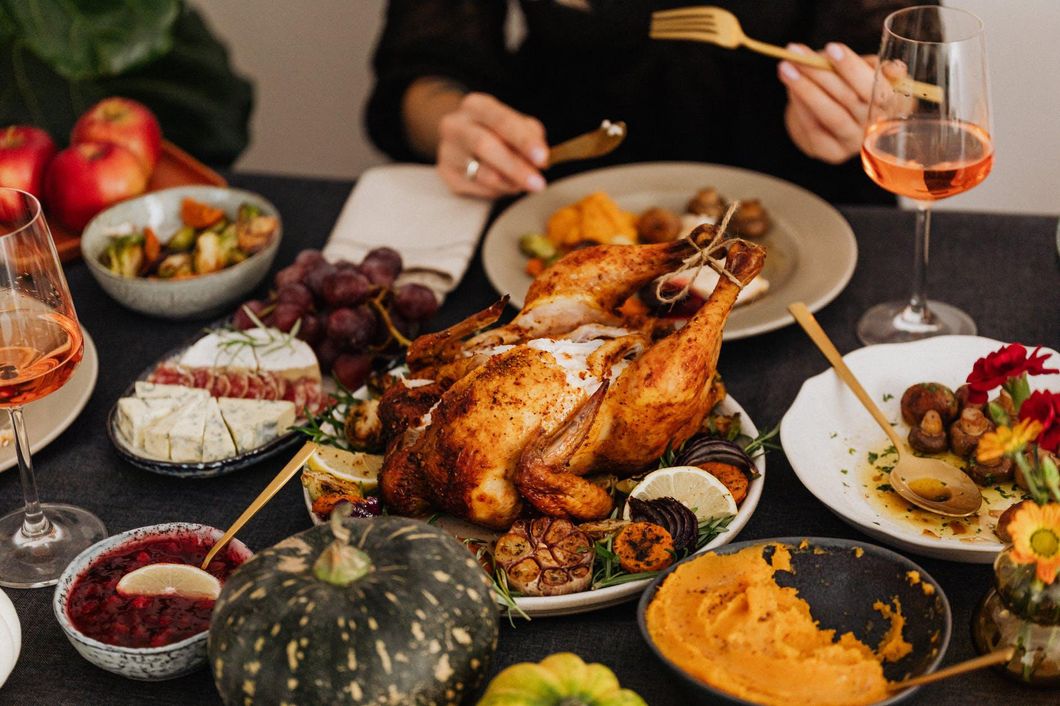Thanksgiving was this past Thursday, and in my house it was filled with numerous delicious treats. My aunts made it their mission to cook every possible Thanksgiving food: turkey, mashed potatoes, cranberry sauce, stuffing; you name it, they made it. And it was fantastic. That was, until I thought about all the food I just ate, and what that meant for my body.
In past Thanksgivings, this hasn't really been a thought that even crossed my mind, but being in college, staying healthy has been harder than it was in high school. I don't have parents to guide my food choices or mandatory sports practices to attend on the daily. This means my body is changing, and maybe not for the better. That's really hard to accept.
So, naturally, after gorging myself on amazing Thanksgiving food, my immediate thought is How should I balance this out? Do I work out tomorrow, or just eat a little less? And it was truly an awful feeling; the more I thought about how much I ate, the worse I felt about myself and my body. The question I should've asked myself, but did not, was: do I feel guilty because I feel unhealthy or because I don't feel slim? In hindsight, I was definitely more focused on the latter.
Fortunately, I came across a post my friend put on their Instagram story. It was titled "For the one who regrets what they ate on Thanksgiving…" (so it really resonated with me), and brought up two eye-opening points: one, that "food is meant to be eaten", and two, that "your body is meant to carry memories, not regret."
Those two sentiments were really powerful to me, and as I later learned, it's because it highlighted the difference between body positivity and body neutrality.
What's the difference, you might ask? Well, body positive is a movement that started about ten years ago, centered around the idea that "all bodies are beautiful". It pushes for more realistic beauty standards and loving the body you have, along with its daily changes and fluctuations.
This is different from body neutrality, which is a mindset that focuses on what your body can do, and attempts to appreciate it from a more neutral perspective. As Chelsea Kronengold, an associative director at the National Eating Disorders Association, puts it, "The body positive movement urges people to love their bodies no matter what they look like, whereas body neutrality focuses on what your body can do for you rather than what it actually looks like".
Though it may seem like an either/or decision, I think embracing both perspectives can have its benefits. It is important to see your body neutrally so you don't place all your value on your appearance, but this perspective isn't entirely realistic (at least, not for me; I will always care about my appearance, no matter how much I don't want to) and brushes over able-bodied privileges. It is equally important to love your body, and what it looks like, in terms of self-confidence and acceptance. But this can also easily lead to guilt if you start to resent your body. So while both have their drawbacks, I find them extremely useful, especially when thought of in harmony.
What I learned from this Thanksgiving is that loving my body and the memories it carries is important.
I am amazing and beautiful, no matter what my body looks like. However, if I come to a point where I am struggling to love my body, I can at least appreciate its abilities, such as my ability to eat my aunts' scrumptious food. It's definitely not easy, but try to embrace living with your body to the fullest, whether that means absolutely loving it, or simply appreciating it. Or maybe a little of both.

















